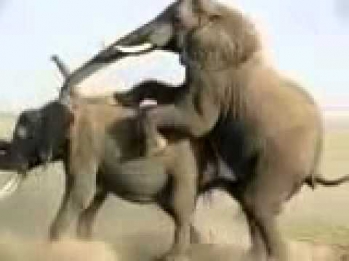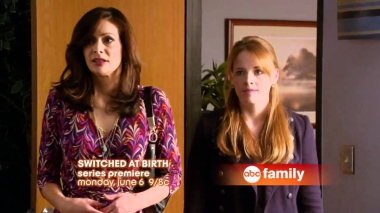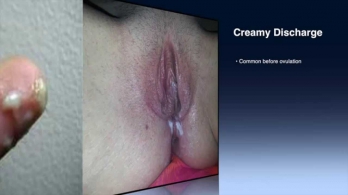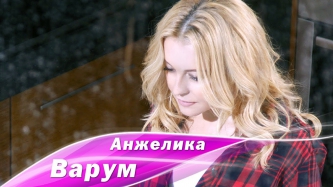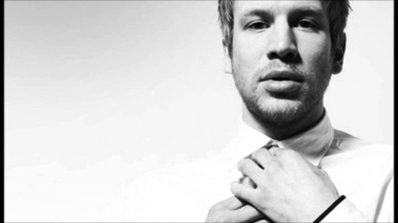Elephant Birth in Bali (graphic)
Эксклюзивное видео на сайте deadmansongs.ru! Graphic footage of the first ever elephant birth filmed in Bali, Indonesia. Commentary by Elephant Safari Park founder, Nigel Mason.For more information about the park please visit our website: FaceBook: Message from owner: IN ANSWER TO YOUR MANY QUESTIONSThe surface of the sick bay where Riski was born is sandstone and is especially designed to be sterile and poses no threat to the mother and calf during or after the birth. The floor is sloped for run off to wash down and sterilize the area quickly. The Sumatran elephant is the smallest elephant in the world and the slight fall is less than one meter. The baby always comes out feet first, unlike a human baby. This breaks the fall as does the embryonic sack, filled with fluid. To my knowledge, there has never been an injury to a baby by this fall. Otherwise the mother would either squat or lie down for the birth, which is never the case. You may notice that we are actually washing down the area of blood while the baby is still not completely standing. The alternative is to remove the baby and separate it from its mother. This is dangerous as it can often lead to the baby being rejected by its mother. A dirt, straw or other easily contaminated surface is not hygienic and might lead to later infection and anyway, straw laid on any surface would serve little purpose to cushion the fall. Our babies are too precious to take any risk that might harm them, so hygiene is essential.All of our babies were born this way and we have a 100 percent success rate for raising healthy calfs. Elephants in the wild do not choose a soft surface, as they tend to birth wherever they happen to be standing at the time, on dirt, rock, or sometimes in the forest with dangerous sticks that could injure the baby. Remember, that the mother kicked the baby in the head and the ribs very severely, but this in fact brought the baby to life. Maybe she knows better what the baby can handle than we do. This is the first time that one of our babies was born dead. Usually they are alert and up on their feet within minutes. This birth was extremely unusual.The baby has difficulty standing, not only because of a slippery surface, but because its legs are weak and its never stood before. She was weak due to the fact that her birth was so dramatic, she wasn\'t breathing. Her mother unfortunately did not take this into account and forced her to stand immediately before she was strong enough. This is an instinctive reaction against predators in the wild. Once standing she had no problem with the surface of the floor. Forty eight hours later they both joined the other mothers and babies in our nursery area, which is grassy and has shady trees. She is extremely healthy and has developed very quickly since her birth.As elephant carers we would do nothing that could cause harm to the baby. Unlike human babies an elephant calf is not fragile, as it has spent almost two years developing inside its mother to give it the extra strength needed to survive the birth and immediately after. Its skeleton is strong and the head is able to withstand far more than a human infant. Never does the surface, whatever it is, make any difference to it standing up within a very short time.This is 18 year old Nickis first baby, she being one of the group of nine elephants that we first rescued from the island of Sumatra in 1997. She was then a four year old orphan who is now part our herd of 30 elephants. Nicki is a very caring and protective mother and plays and swims four times a day with the other babies and their mothers at one of our two park lakes.To answer the question, were we going to help the mother the answer is of course yes. But under the situation it was best to let nature take its course first, as often unnecessary interference can cause the mother to reject the baby. I had allowed for three minutes for Nicki to sort it out before we intervened. However she brought the baby to life in just under 2½ minutes herself.Riski lives at the Elephant Safari Park at Taro near Ubud in central Bali which was created in 1997 and is a full elephant experience. Visitors can learn about Sumatran elephants and can hand feed, touch and even ride the elephants and watch daily elephant talent shows. Here guests can get up close and personal with elephants, unlike zoos where you can only view elephants from a distance. The park also includes many facilities for guests and elephants alike. There are two lakes set in botanical gardens, shade houses, breeding and nursery areas and a laboratory with other elephant facilities. For guests there is an elephant museum, restaurant, shop, arena and 25 room 5 star lodge for overnight stays. Guests can visit in the daytime or for a Night Safari ride with dinner.Nigel MasonManaging Director Copyright ® Elephant Safari Park & Lodge. - с лучшим качеством и звучанием!
Graphic footage of the first ever elephant birth filmed in Bali, Indonesia. Commentary by Elephant Safari Park founder, Nigel Mason.For more information about the park please visit our website: FaceBook: Message from owner: IN ANSWER TO YOUR MANY QUESTIONSThe surface of the sick bay where Riski was born is sandstone and is especially designed to be sterile and poses no threat to the mother and calf during or after the birth. The floor is sloped for run off to wash down and sterilize the area quickly. The Sumatran elephant is the smallest elephant in the world and the slight fall is less than one meter. The baby always comes out feet first, unlike a human baby. This breaks the fall as does the embryonic sack, filled with fluid. To my knowledge, there has never been an injury to a baby by this fall. Otherwise the mother would either squat or lie down for the birth, which is never the case. You may notice that we are actually washing down the area of blood while the baby is still not completely standing. The alternative is to remove the baby and separate it from its mother. This is dangerous as it can often lead to the baby being rejected by its mother. A dirt, straw or other easily contaminated surface is not hygienic and might lead to later infection and anyway, straw laid on any surface would serve little purpose to cushion the fall. Our babies are too precious to take any risk that might harm them, so hygiene is essential.All of our babies were born this way and we have a 100 percent success rate for raising healthy calfs. Elephants in the wild do not choose a soft surface, as they tend to birth wherever they happen to be standing at the time, on dirt, rock, or sometimes in the forest with dangerous sticks that could injure the baby. Remember, that the mother kicked the baby in the head and the ribs very severely, but this in fact brought the baby to life. Maybe she knows better what the baby can handle than we do. This is the first time that one of our babies was born dead. Usually they are alert and up on their feet within minutes. This birth was extremely unusual.The baby has difficulty standing, not only because of a slippery surface, but because its legs are weak and its never stood before. She was weak due to the fact that her birth was so dramatic, (she wasn't breathing). Her mother unfortunately did not take this into account and forced her to stand immediately before she was strong enough. This is an instinctive reaction against predators in the wild. Once standing she had no problem with the surface of the floor. Forty eight hours later they both joined the other mothers and babies in our nursery area, which is grassy and has shady trees. She is extremely healthy and has developed very quickly since her birth.As elephant carers we would do nothing that could cause harm to the baby. Unlike human babies an elephant calf is not fragile, as it has spent almost two years developing inside its mother to give it the extra strength needed to survive the birth and immediately after. Its skeleton is strong and the head is able to withstand far more than a human infant. Never does the surface, whatever it is, make any difference to it standing up within a very short time.This is 18 year old Nickis first baby, she being one of the group of nine elephants that we first rescued from the island of Sumatra in 1997. She was then a four year old orphan who is now part our herd of 30 elephants. Nicki is a very caring and protective mother and plays and swims four times a day with the other babies and their mothers at one of our two park lakes.To answer the question, were we going to help the mother the answer is of course yes. But under the situation it was best to let nature take its course first, as often unnecessary interference can cause the mother to reject the baby. I had allowed for three minutes for Nicki to sort it out before we intervened. However she brought the baby to life in just under 2½ minutes herself.Riski lives at the Elephant Safari Park at Taro near Ubud in central Bali which was created in 1997 and is a full elephant experience. Visitors can learn about Sumatran elephants and can hand feed, touch and even ride the elephants and watch daily elephant talent shows. Here guests can get up close and personal with elephants, unlike zoos where you can only view elephants from a distance. The park also includes many facilities for guests and elephants alike. There are two lakes set in botanical gardens, shade houses, breeding and nursery areas and a laboratory with other elephant facilities. For guests there is an elephant museum, restaurant, shop, arena and 25 room 5 star lodge for overnight stays. Guests can visit in the daytime or for a Night Safari ride with dinner.Nigel MasonManaging Director Copyright ® Elephant Safari Park & Lodge.

